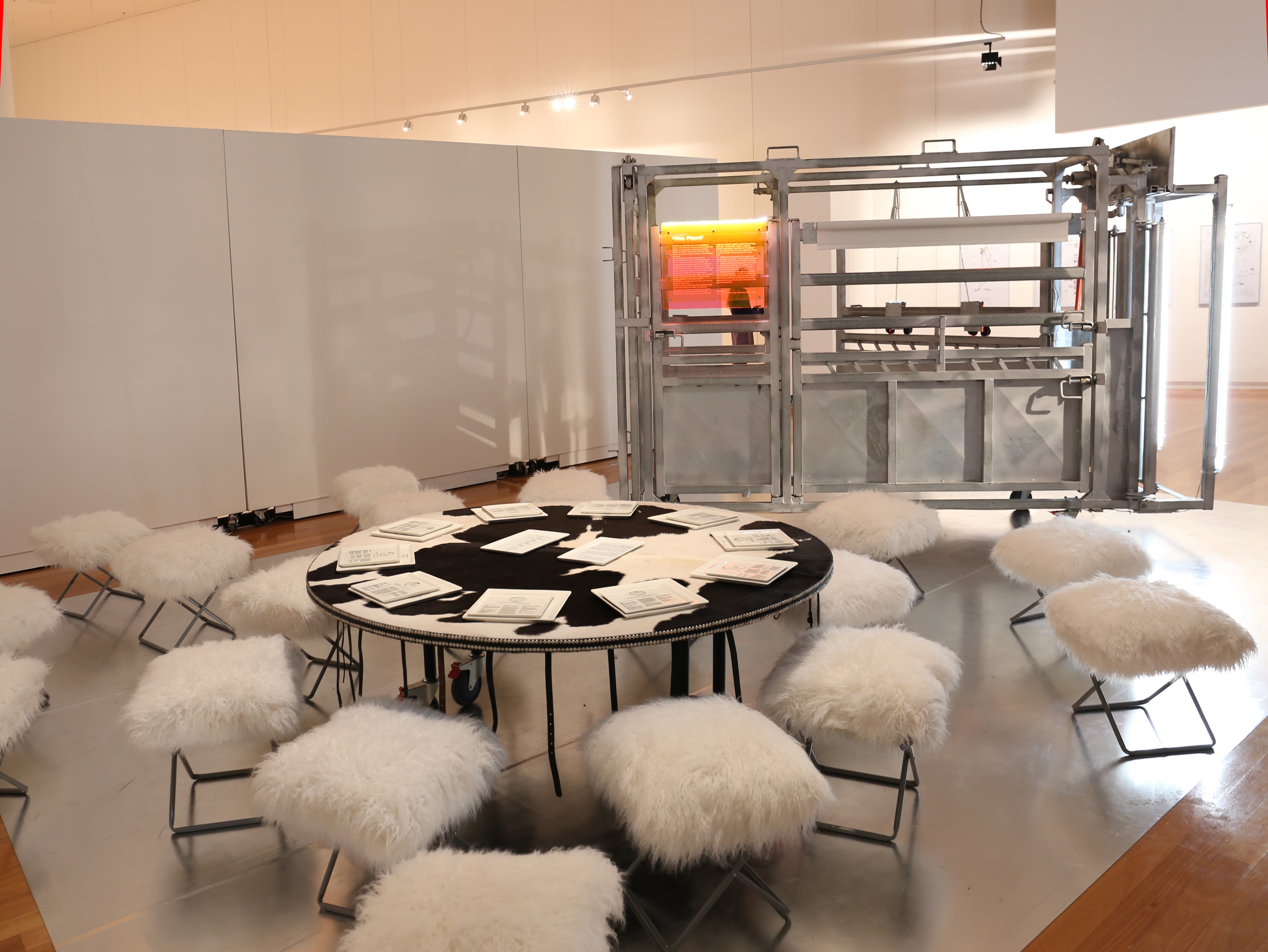In an era of global consumption, our understanding of cattle stock routes can no longer be local. That’s the concept at the core of two new works by UTS academics Amaia Sanchez-Velasco (Lecturer, School of Architecture), Gonzalo Valiente and Jorge Valiente (Lecturers, Interior and Spatial Design).
Working together as a UTS research cluster, Grandeza, the trio were commissioned by the the New Landscapes Institute and curator Joni Taylor to explore the past, present and future of traveling stock routes. Their work is featured alongside nine others in the group exhibition The Long Paddock at Wagga Wagga Art Gallery.
Grandeza’s two works are ‘Transhumance’, a research and design proposal for Spanish stock routes; and, ‘The Plant’ an installation that draws on a body of research about the global scope of stock routes in the age of Anthropocene.
‘The Plant’ is a term that refers to the ensemble of human, animal and technological actors involved in the tradition of moving stock across large and linear sections of territory. The Installation is a synecdoche, a selection of deconstructed technologies: Twenty foldable polyester ‘Merino Chairs’, a Cattle crush on wheels dressed up as a ‘media machine’ and a traveling cow-table called ‘Margarita’ (Daisy in Spanish). It is a performative staging set that contrasts pastoral and industrial imaginaries of rural landscapes.
‘Transhumance’ (Multi-scale Strategies to Reactivate Transhumance in Spain) is a project that speculates about the possibilities of re-articulating traditional forms of territorial management to find new potentials in the contemporary manifestation of the Transhumance. Specifically, the project aims to reverse the impact that paradigmatic changes in agricultural production are inflicting on different levels of the Spanish cultural landscapes.
A series of ‘Multi-scale Strategies to Reactivate Transhumance in Spain’ are articulated around a Transhumant Shepherd’s School. The school functions as a pedagogic traveling infrastructure positioned to facilitate cultural interchange and knowledge transfer. Through the proposition of these facilities, and a critical exploration of their expanded effects, this project portrays the ecologic, legal, economic and political situation of the Spanish hinterlands, and illustrates speculative scenarios for alternative futures.
Exhibition: The Long Paddock, Wagga Wagga Art Gallery
Exhibition Dates: 6th of May - 17th of July
UTS team: Amaia Sanchez Velasco, Jorge Valiente Oriol, Gonzalo Valiente
